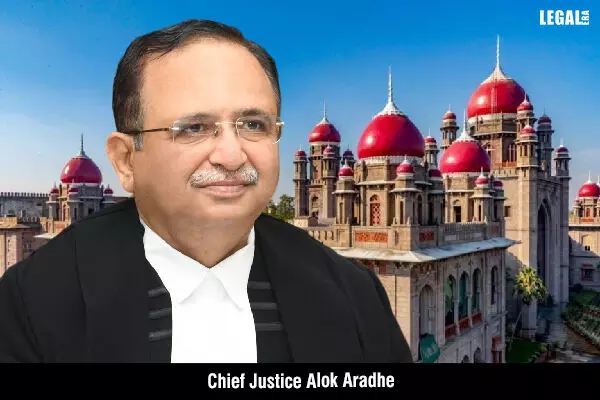- Home
- News
- Articles+
- Aerospace
- Artificial Intelligence
- Agriculture
- Alternate Dispute Resolution
- Arbitration & Mediation
- Banking and Finance
- Bankruptcy
- Book Review
- Bribery & Corruption
- Commercial Litigation
- Competition Law
- Conference Reports
- Consumer Products
- Contract
- Corporate Governance
- Corporate Law
- Covid-19
- Cryptocurrency
- Cybersecurity
- Data Protection
- Defence
- Digital Economy
- E-commerce
- Employment Law
- Energy and Natural Resources
- Entertainment and Sports Law
- Environmental Law
- Environmental, Social, and Governance
- Foreign Direct Investment
- Food and Beverage
- Gaming
- Health Care
- IBC Diaries
- In Focus
- Inclusion & Diversity
- Insurance Law
- Intellectual Property
- International Law
- IP & Tech Era
- Know the Law
- Labour Laws
- Law & Policy and Regulation
- Litigation
- Litigation Funding
- Manufacturing
- Mergers & Acquisitions
- NFTs
- Privacy
- Private Equity
- Project Finance
- Real Estate
- Risk and Compliance
- Student Corner
- Take On Board
- Tax
- Technology Media and Telecom
- Tributes
- Viewpoint
- Zoom In
- Law Firms
- In-House
- Rankings
- E-Magazine
- Legal Era TV
- Events
- Middle East
- Africa
- News
- Articles
- Aerospace
- Artificial Intelligence
- Agriculture
- Alternate Dispute Resolution
- Arbitration & Mediation
- Banking and Finance
- Bankruptcy
- Book Review
- Bribery & Corruption
- Commercial Litigation
- Competition Law
- Conference Reports
- Consumer Products
- Contract
- Corporate Governance
- Corporate Law
- Covid-19
- Cryptocurrency
- Cybersecurity
- Data Protection
- Defence
- Digital Economy
- E-commerce
- Employment Law
- Energy and Natural Resources
- Entertainment and Sports Law
- Environmental Law
- Environmental, Social, and Governance
- Foreign Direct Investment
- Food and Beverage
- Gaming
- Health Care
- IBC Diaries
- In Focus
- Inclusion & Diversity
- Insurance Law
- Intellectual Property
- International Law
- IP & Tech Era
- Know the Law
- Labour Laws
- Law & Policy and Regulation
- Litigation
- Litigation Funding
- Manufacturing
- Mergers & Acquisitions
- NFTs
- Privacy
- Private Equity
- Project Finance
- Real Estate
- Risk and Compliance
- Student Corner
- Take On Board
- Tax
- Technology Media and Telecom
- Tributes
- Viewpoint
- Zoom In
- Law Firms
- In-House
- Rankings
- E-Magazine
- Legal Era TV
- Events
- Middle East
- Africa
Dispute Related To Insolvency And Winding-Up Of Partnership Concerning Partners' Rights And Obligations Is Arbitrable: Telangana High Court

Dispute Related To Insolvency And Winding-Up Of Partnership Concerning Partners' Rights And Obligations Is Arbitrable: Telangana High Court
Justice Alok Aradhe of the Telangana High Court has ruled that according to Section 16(1) of the Arbitration and Conciliation Act, 1996, arbitral tribunals possess the authority to determine their own jurisdiction, which includes deciding on the non-arbitrability of a dispute. Additionally, the court determined that disputes pertaining to the insolvency and winding-up of a partnership concerning partners' rights and obligations are arbitrable.
The dispute originated when the applicant sought information and clarification regarding the firm through legal notices, which were denied by the respondents. Following this, the applicant informed the respondents of the firm's dissolution under Section 43 of the Indian Partnership Act, 1932, and requested settlement of accounts.
Subsequent to these communications, the applicant approached the Telangana High Court (High Court) seeking the appointment of a sole arbitrator under Section 11(6) of the Arbitration and Conciliation Act, 1996.
The applicant contends that the respondents have not contested the execution of the partnership deed or denied the existence of the arbitration clause. It is argued that a dispute has arisen between the parties, which must be resolved in accordance with the agreed-upon method by the parties.
The respondent argued that the authority of the arbitrator outlined in the partnership deed is limited, and seeking settlement of accounts falls outside the scope of Clause 19 of the partnership deed. Furthermore, it was argued that disputes concerning insolvency and winding-up matters are non-arbitrable.
The High Court observed that the respondents neither contested the existence of the partnership deed nor refuted the inclusion of the arbitration clause within it.
The High Court cited Section 16(1) of the Arbitration and Conciliation Act, 1996, which grants the arbitral tribunal the authority to determine its own jurisdiction. The court referred to the Supreme Court's decision in Uttarakhand Purv Sainik Kalyan Nigam Ltd. v. Northern Coal Field Ltd., highlighting the kompetenz-kompetenz doctrine, which aims to minimize judicial interference and facilitate the smooth progress of the arbitral process. The High Court affirmed that Section 16 of the Arbitration Act confers extensive powers upon the arbitral tribunal, including the ability to adjudicate on jurisdictional matters.
Moreover, the High Court cited the ruling of the seven-judge bench of the Supreme Court in Re: Interplay between Arbitration Agreements under the Arbitration and Conciliation Act, 1996, and the Indian Stamp Act, 1899, and noted that the scope of inquiry under Section 11(6A) of the Arbitration Act is restricted to establishing the prima facie existence of an arbitration agreement. Matters pertaining to the substantive existence and validity of the arbitration agreement are entrusted to the arbitral tribunal for adjudication under Section 16.
Hence, the High Court determined that objections regarding the arbitrator's jurisdiction to resolve the applicant's claim can and should be raised before the arbitral tribunal directly. It affirmed that while certain disputes, such as those involving insolvency and winding-up of a company, are non-arbitrable, the dispute in question falls within the scope of the Indian Partnership Act, 1932, concerning the rights and obligations of Partners. Therefore, the dispute is deemed arbitrable.
As a result, the High Court designated Justice L. Nageswara Rao, a Former Judge of the Supreme Court, to serve as the sole arbitrator tasked with resolving the dispute between the parties.



